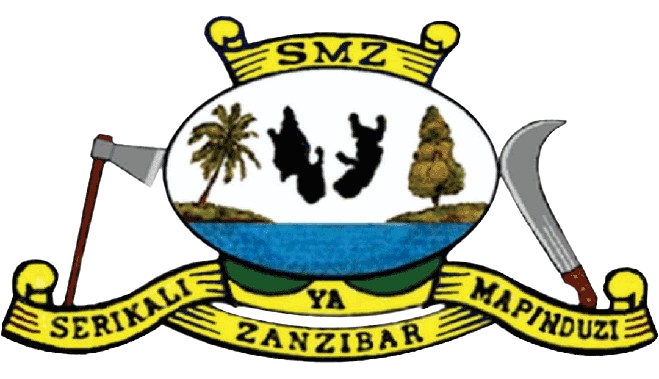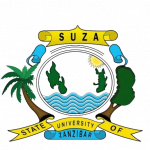In a push to tackle plastic pollution threatening Zanzibar’s coasts, Mawimbi Youth Voices of Zanzibar teamed up with students from the State University of Zanzibar, KOICA volunteers from South Korea, and TROCEN staff in a cleanup at Kizingo Beach, held on Monday, 18 August 2025.
As the day began at Kizingo Beach, the calm sea met the gentle breeze. Most fishermen were already out at sea casting their nets, while a few remained onshore, preparing their boats to head out. Life along the shore carried its usual rhythm, yet just a few steps away, another activity was unfolding. Mawimbi Youth Voices of Zanzibar, together with students from the State University of Zanzibar, TROCEN staff, and KOICA volunteers from South Korea, gathered to begin a beach cleanup, turning an ordinary morning into a collective effort to fight plastic waste.
Dozens of bags of waste, primarily filled with plastic bottles, caps, and small fragments, were collected during the cleanup. Discarded fishing nets and ropes were also recovered, along with plastic bags and cigarette filters. According to UNEP, plastics make up as much as 85% of marine litter worldwide, and Zanzibar is no exception. This type of pollution not only mars the beauty of its beaches but also damages fishing gear, depletes fish stocks, and threatens vital economic sectors such as tourism and fisheries.
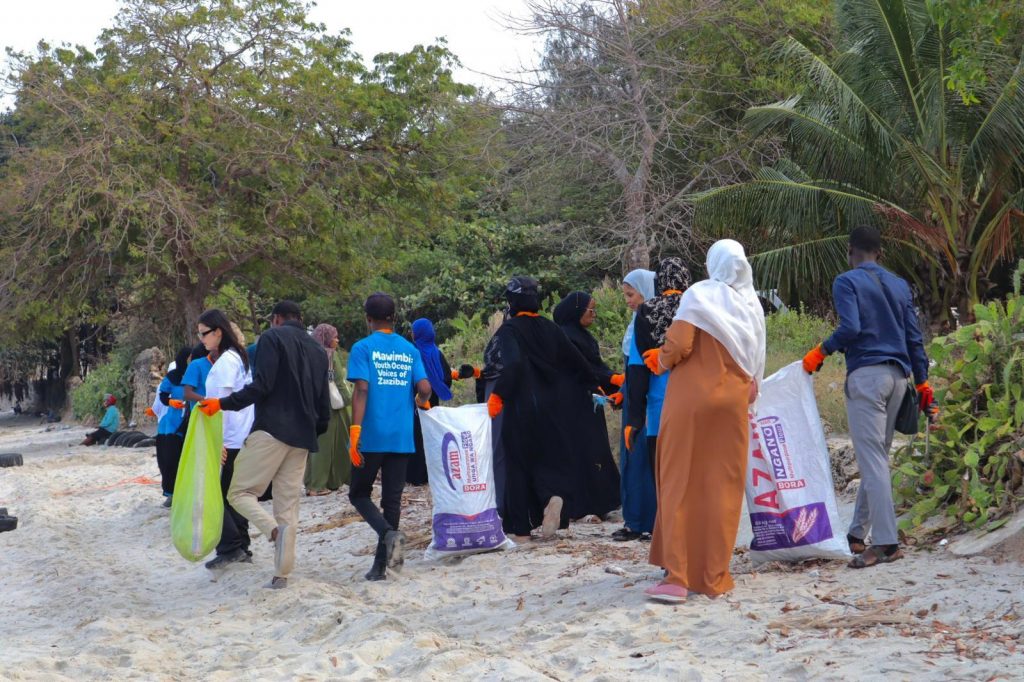
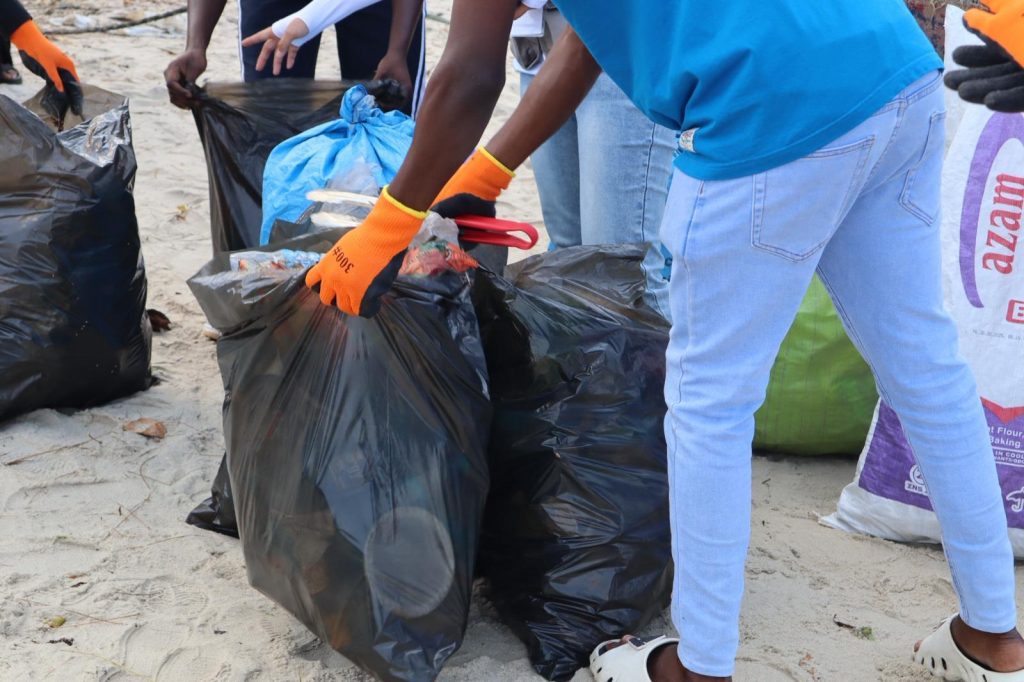
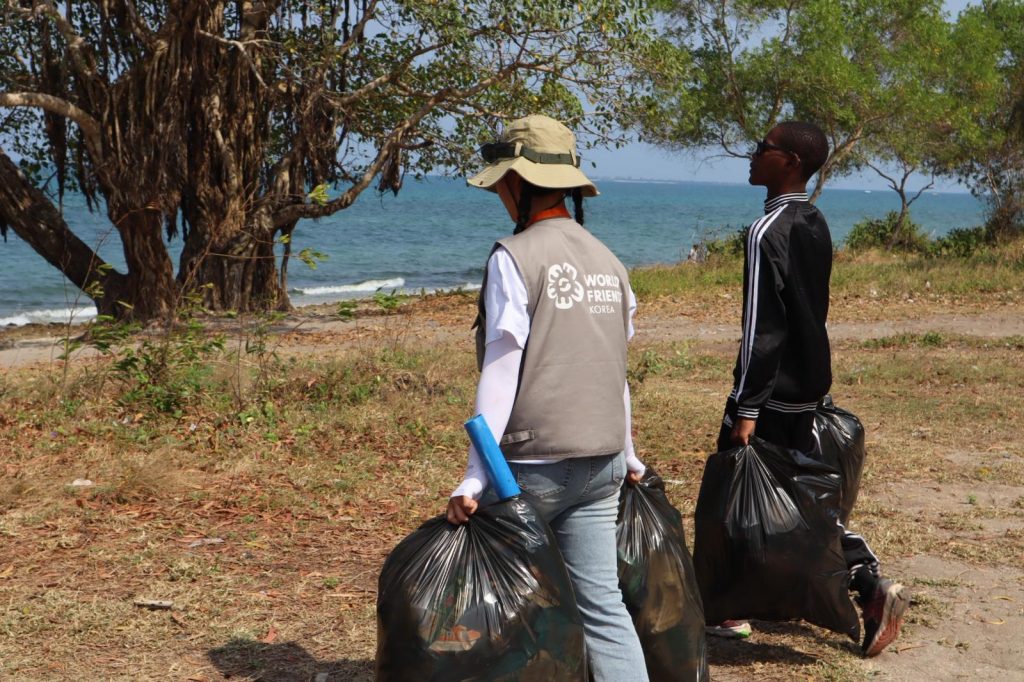
Participants in action during the cleanup activity at Kizingo beach
Reflecting on the cleanup, Lubna Amour, a second-year Environmental Studies student at the State University of Zanzibar, said, “Firstly, as a citizen of Zanzibar, I have learned that conserving the marine environment is our overall responsibility regardless of someone’s title or position. This will help protect marine species while advancing economic sectors like fisheries and tourism, which are key to our economy as a country.” She added, “As an environmental student, I have learned that there is a greater need for us to participate in such activities, which exposes us to the real environmental challenges facing our marine environments. And to be honest, after what I have observed today, I think there is a greater need to invest more effort in educating the community on the importance of conserving our marine environments.”
Plastic pollution poses a serious threat to Zanzibar’s tourism industry, a cornerstone of the region’s economy. A 2023 study conducted by the University of Wollongong in collaboration with the World Bank’s PROBLUE program estimated that marine plastic pollution led to a loss of approximately USD 13.7 million in tourist spending. This decline stems from negative perceptions among visitors, driven by littered beaches and polluted waters. The study underscores how environmental degradation not only diminishes the visual appeal of Zanzibar’s coastline but also compromises the overall quality of the tourist experience, resulting in fewer visitors and reduced spending.
On a global scale, marine plastic pollution is recognized as a major environmental challenge for coastal regions dependent on tourism. According to the United Nations Environment Programme (UNEP), plastic waste leakage contaminates beaches and marine ecosystems, triggering economic losses in local communities. Alarmingly, only 10% of global plastic waste is recycled, while 14% is incinerated, the remainder remains unmanaged, often ending up in waterways and oceans, further intensifying the crisis.
Following the cleanup, Mawimbi Youth Voices of Zanzibar continued their work at the TROCEN Laboratory from Tuesday, 19 August to Friday, 22 August 2025. At the lab, the team received hands-on training in plastic waste analysis and classification, learning to categorize collected plastic waste by type and identify their sources and potential environmental impacts. This integration of practical fieldwork with scientific analysis provided a comprehensive understanding of the pollution issue, generating valuable data to inform future strategies for reducing plastic waste and safeguarding Zanzibar’s coasts and the livelihoods that rely on them.
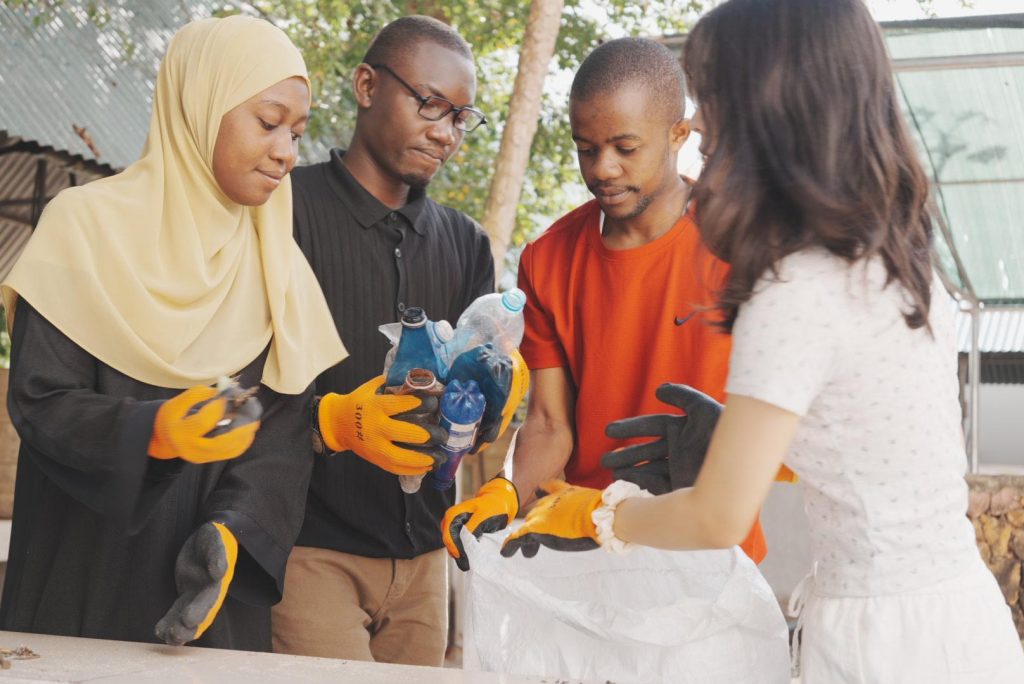
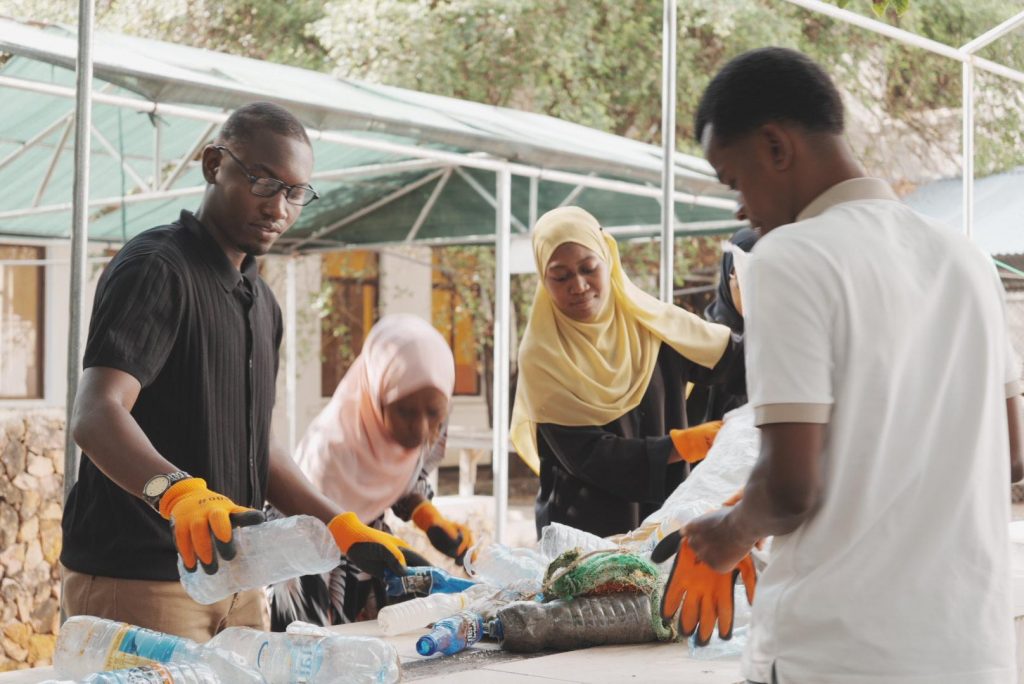
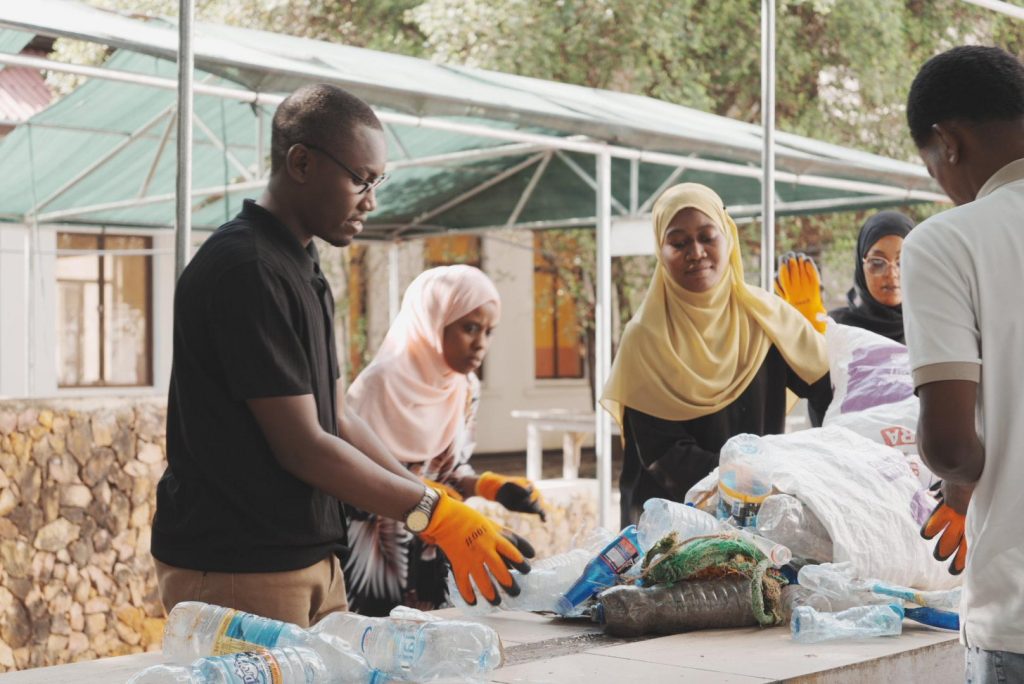
Mawimbi Youth Voices of Zanzibar in action during plastic waste analysis activity at TROCEN Lab
Following the plastic waste analysis, participants visited CHAKO, a local NGO established in 2012 that focuses on recycling, and upcycling of glass and plastic waste. From glass bottles and plastic waste collected mainly from hotels and restaurants, CHAKO produces decorative and functional products such as key holders, glass containers, table tops, bulb holders, baskets, and hanging lampshades. On average, CHAKO upcycles about 138,600 bottles and processes 6.1 tonnes of plastic waste annually. Yet, despite hotels generating nearly half of Zanzibar’s solid waste, only about 20 percent is properly managed, leaving the majority dumped untreated. For

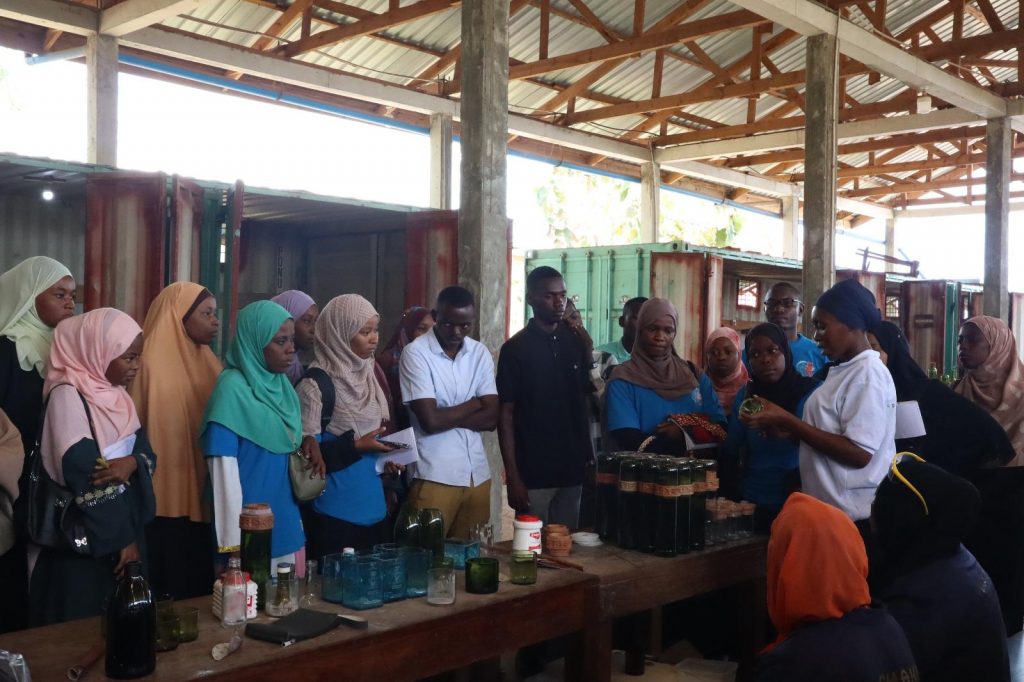
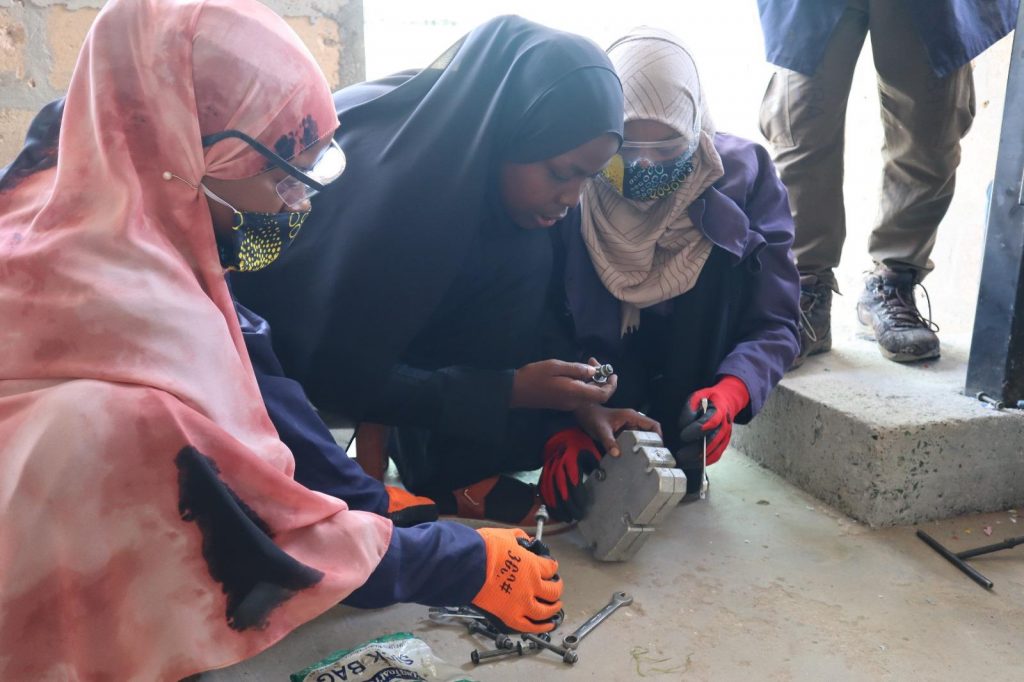
Participants in action during the training on upcycling of glass and plastic waste into valuable products at CHAKO
Mawimbi Youth Voices, and other participants, practiced upcycling plastic and glass waste materials into new products, gaining an understanding of how creativity and technology can transform waste into economic opportunity. The experience carried a clear lesson for Zanzibar: waste is not only an environmental challenge but also a potential driver of green jobs, sustainable tourism, and circular economy growth. However, as highlighted by Helena, one of the CHAKO staff members, community awareness of proper waste management remains low, underlining the importance of continuous education and advocacy if such initiatives are to scale and make lasting impact.
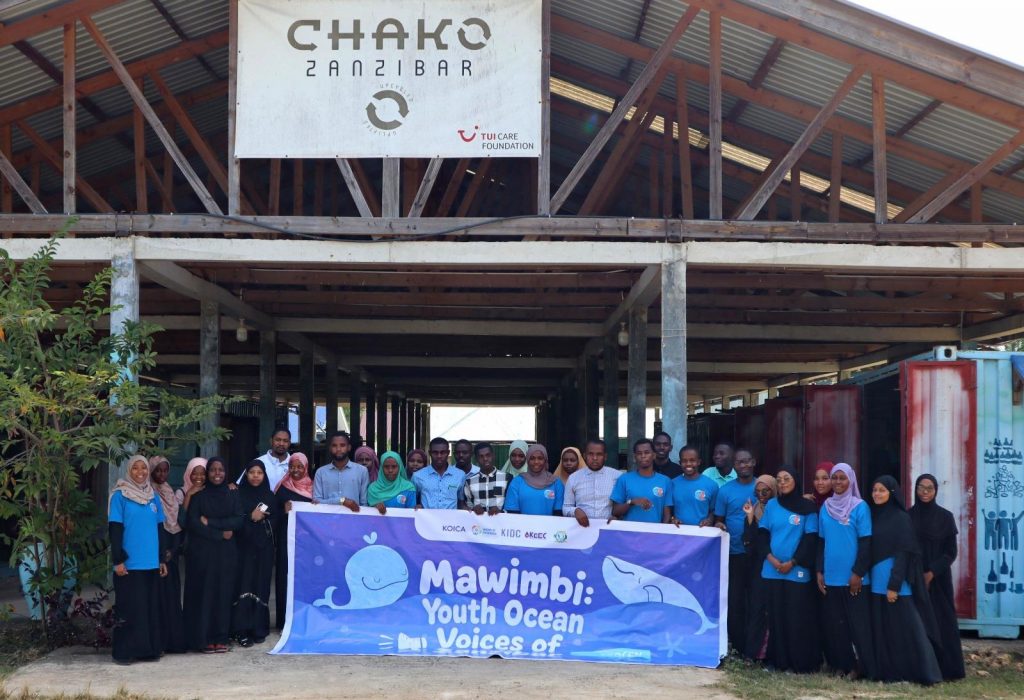
Mawimbi youth Ocean Voices of Zanzibar together with SUZA students at CHAKO
Ultimately, plastic pollution remains a pressing threat to Zanzibar’s coastlines, fragile ecosystems, and the livelihoods that rely on them. Tackling this challenge demands collective responsibility, heightened public awareness, and decisive action across all sectors of society. Only through sustained commitment and active community engagement can Zanzibar’s shores be safeguarded for generations to come.

Mawimbi Youth Ocean Voices of Zanzibar together with KOICA Volunteers, TROCEN staff and SUZA students after the cleanup activity at Kizingo beach
